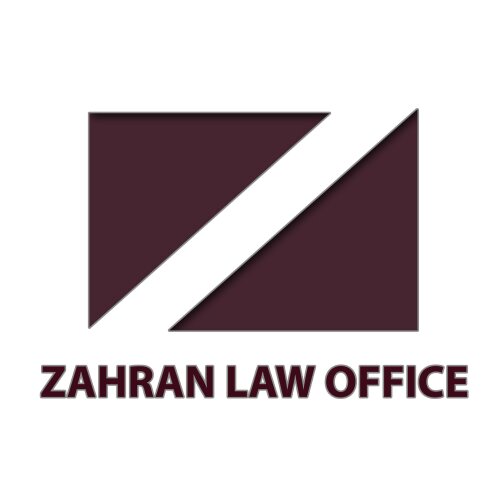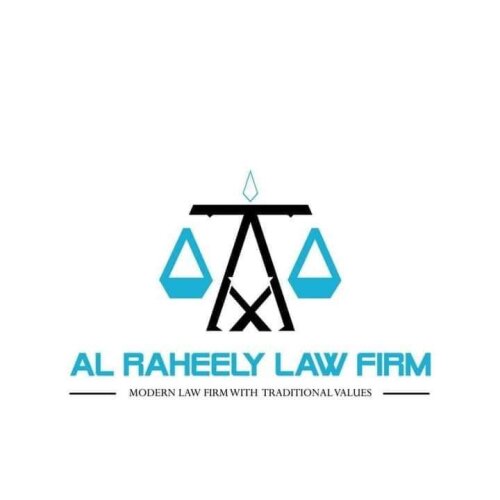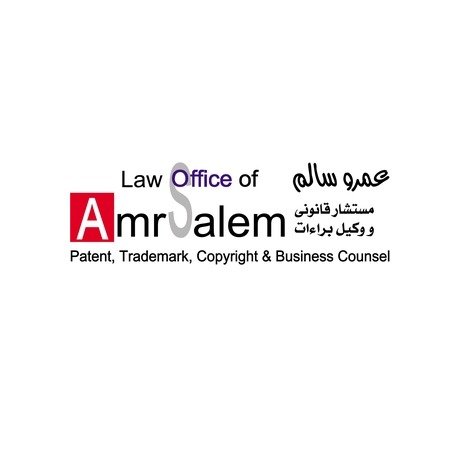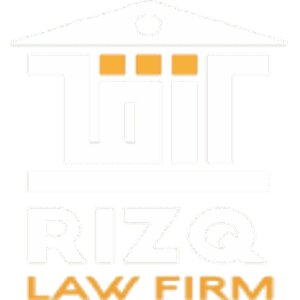Best Energy Regulatory Law Lawyers in Egypt
Share your needs with us, get contacted by law firms.
Free. Takes 2 min.
Or refine your search by selecting a city:
List of the best lawyers in Egypt
About Energy Regulatory Law in Egypt
Energy Regulatory Law in Egypt refers to the legal framework that governs the generation, transmission, distribution, and consumption of energy, including electricity, natural gas, and renewable energy sources. This area of law is structured to ensure reliable, affordable, and environmentally responsible energy supply across the country. It involves licensing, tariffs, grid access, investment in the energy sector, consumer protection, and compliance with both national and international standards. The introduction of the Egyptian Electricity Law No. 87 of 2015 marked a significant step in liberalizing the market, promoting private sector participation, and modernizing regulatory oversight through the Egyptian Electric Utility & Consumer Protection Regulatory Agency (EgyptERA). Additionally, Egypt's push towards renewable energy has led to new guidelines and incentives for clean energy projects.
Why You May Need a Lawyer
Individuals and businesses often encounter complex legal scenarios in the energy sector. Typical situations where legal help may be necessary include:
- Applying for licenses to generate, transmit, or distribute electricity or natural gas
- Negotiating and drafting power purchase agreements or supply contracts
- Dealing with disputes regarding tariffs, billing, or regulatory compliance
- Securing permits for renewable energy projects, such as solar or wind farms
- Navigating government incentives and subsidy programs
- Participating in public or private tenders in the energy market
- Understanding foreign investment regulations in energy infrastructure
- Managing environmental compliance, especially with emissions and sustainability standards
Given the technical and evolving nature of energy regulations, legal support ensures proper navigation through administrative procedures and minimizes risk of non-compliance.
Local Laws Overview
Energy Regulatory Law in Egypt is shaped by several key statutes and regulatory bodies:
- Electricity Law No. 87 of 2015 - This law opened the electricity market and set the framework for licensing, competition, and consumer protection.
- Law No. 203 of 2014 - Supports private sector participation in renewable energy and introduced the feed-in tariff system.
- Egyptian Electric Utility & Consumer Protection Regulatory Agency (EgyptERA) - Oversees market regulations, issues licenses, ensures consumer protection, and supervises market competition.
- Renewable Energy Authority of Egypt (NREA) - Promotes and manages renewable energy projects.
- Cabinet Decrees & Ministerial Resolutions - Frequently update rules concerning tariffs, grid access, and project qualifications.
Other relevant laws may relate to investment incentives, environmental protection, and international agreements, reflecting Egypt’s commitment to sustainable and secure energy development.
Frequently Asked Questions
What is the role of EgyptERA?
EgyptERA regulates the electricity market, issues licenses for energy activities, monitors compliance, sets tariffs, and protects consumer rights. It acts independently to ensure fair and efficient market operations.
Do I need a license to produce electricity for commercial use?
Yes, any entity wishing to generate, transmit, or distribute electricity for commercial purposes must obtain a license from EgyptERA. There are different categories depending on the scale and type of activity.
What incentives exist for renewable energy investors?
Egypt offers several incentives for renewable energy investments, including preferential tariffs under the feed-in tariff program, customs exemptions, land allocation, and long-term purchase agreements. Guidelines and eligibility requirements are set by the NREA and relevant ministries.
Are there limits on foreign ownership in the energy sector?
There are generally no restrictions on foreign ownership in most energy projects, though certain strategic infrastructure may require local participation. Each project is subject to approval by relevant authorities and must comply with investment laws.
How are energy tariffs and prices determined?
Tariffs are set by EgyptERA based on cost studies, market dynamics, and policy objectives. They are periodically reviewed and updated to reflect fuel costs, operational expenses, and investment requirements.
What permits are required for building a solar or wind project?
Developers typically need site allocation approval, environmental permits, grid connection authorization, and a generation license. Coordination with the NREA and EgyptERA is required throughout the process.
How does Egypt ensure consumer protection in the energy sector?
EgyptERA has a dedicated consumer rights division that addresses complaints, monitors service quality, and enforces transparency in billing and dispute resolution.
What are the penalties for non-compliance with energy regulations?
Penalties can include fines, suspension or revocation of licenses, compensation for damages, or other administrative measures depending on the severity and nature of the violation.
How can disputes with energy suppliers or regulators be resolved?
Most disputes are resolved through mediation or administrative review by EgyptERA. If necessary, parties may escalate cases to Egyptian courts or specialized arbitration panels.
Is it possible to export energy from Egypt?
Yes, Egypt has interconnection agreements with neighboring countries. Exporters need to meet technical, licensing, and contractual requirements set by regulatory authorities.
Additional Resources
If you are seeking advice or more information regarding Energy Regulatory Law in Egypt, consider the following resources:
- Egyptian Electric Utility & Consumer Protection Regulatory Agency (EgyptERA) - The primary regulatory body for electricity and consumer protection
- Renewable Energy Authority of Egypt (NREA) - Facilitates information and support for renewable energy investors
- Ministry of Electricity and Renewable Energy - Releases official policies, decrees, and incentives
- General Authority for Investment and Free Zones (GAFI) - Offers guidance on investment procedures in the energy sector
- Environmental Affairs Agency - For permits relating to environmental impact, especially for large scale projects
- Professional legal associations - Qualified lawyers or firms specializing in energy and infrastructure matters
Next Steps
If you require legal assistance in energy regulatory matters in Egypt, consider the following steps:
- Clearly identify the specific issue or project you need help with, such as licensing, contracts, or dispute resolution.
- Gather all relevant documents, such as contracts, correspondence, or previous communications with regulatory bodies.
- Contact a lawyer or law firm with expertise in energy or infrastructure law. Local experience and understanding of regulatory procedures are critical.
- Prepare a list of questions and desired outcomes for your consultation.
- Leverage official resources and request clarification from government agencies if needed. An experienced lawyer can help streamline this process and represent your interests effectively before authorities or in negotiations.
Navigating energy regulatory law can be complex, but with qualified legal support and an understanding of the local framework, you can ensure compliance, mitigate risks, and achieve your business or personal objectives in the Egyptian energy sector.
Lawzana helps you find the best lawyers and law firms in Egypt through a curated and pre-screened list of qualified legal professionals. Our platform offers rankings and detailed profiles of attorneys and law firms, allowing you to compare based on practice areas, including Energy Regulatory Law, experience, and client feedback.
Each profile includes a description of the firm's areas of practice, client reviews, team members and partners, year of establishment, spoken languages, office locations, contact information, social media presence, and any published articles or resources. Most firms on our platform speak English and are experienced in both local and international legal matters.
Get a quote from top-rated law firms in Egypt — quickly, securely, and without unnecessary hassle.
Disclaimer:
The information provided on this page is for general informational purposes only and does not constitute legal advice. While we strive to ensure the accuracy and relevance of the content, legal information may change over time, and interpretations of the law can vary. You should always consult with a qualified legal professional for advice specific to your situation.
We disclaim all liability for actions taken or not taken based on the content of this page. If you believe any information is incorrect or outdated, please contact us, and we will review and update it where appropriate.
Browse energy regulatory law law firms by city in Egypt
Refine your search by selecting a city.
















